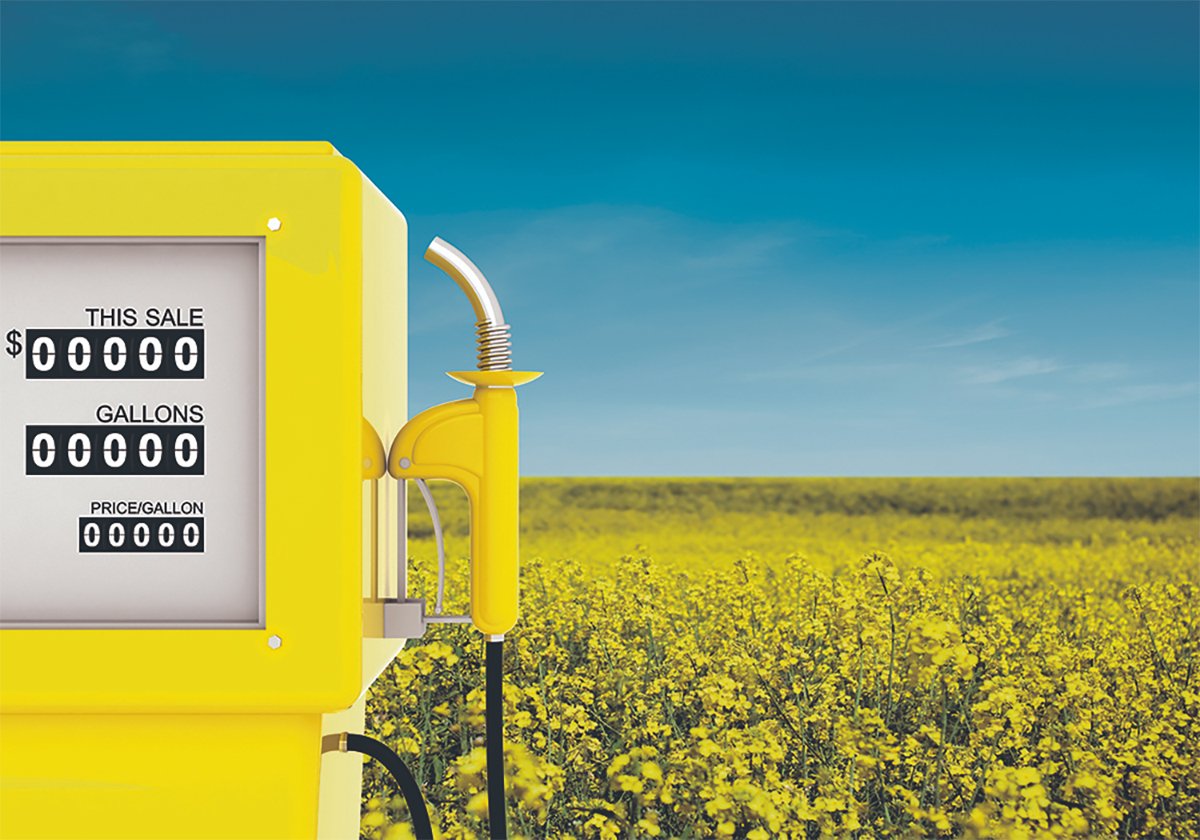Farmer’s aren’t breaking out the champagne when they lock up new crop prices this spring.
“There’s a little less excitement this year,” said Mel Pawlyk, who oversees the Canadian Wheat Board’s Producer Payment Options forward pricing contracts.
“Last year at this time it was well ahead.”
Analysts chalk up the slow pace of forward selling to lackluster prices that are tempting fewer farmers to sign on the dotted line.
“We don’t really want to lock in losses, and we want to generate profits,” Darren Frank of FarmLink Marketing Solutions said about the slow, incremental nature of forward sales his organization is advising.
Read Also

Biofuel sector happy with federal budget
Advanced Biofuels Canada says new Biofuel Production Incentive is a lifeline until CFR amendments are in place.
He suggests making sales whenever profitability appears, but that means some crops, such as wheat, barley and oats, offer no reason to sell now.
Nor are profits on other crops big enough to advise sales.
“The toughest thing to do is to get into the farmer’s mindset that we’re not going to see the prices this spring that we saw last spring,” Frank said.
“Those profits are not going to be there.”
Prices during last spring’s frantic rally were hard to pass up, but once markets began to tumble after September, forward selling dried up.
Farmers chose to wait for a substantial rally. For most crops, they’re still waiting.
“A lot of growers will get a little bullish at this time of year and hang back,” said Ken Ball of Union Securities.
Many farmers expect markets will rally sometime this year.
“There’s a pretty bullish attitude out there in general,” Ball said.
“That goes along with it being spring, but I’m a little worried that they’re more bullish than is warranted by the overall circumstances.”
Frank said his firm is urging farmers to sell 2009-10 lentils through flat price contracts with act-of-God clauses because prices floating around 25 cents per pound are profitable.
With a lot of other crops, it depends on the day. Farmers sold more when canola recently climbed to $9.50 to $10 per bushel but stopped when prices retreated to $9.35 to $9.50.
Few producers can make a profit on the current CWB Fixed Price Contract (FPC) bid for wheat, Frank said. Sales last September through the FPC that locks in the futures component will produce a good profit, but current prices are inadequate.
“We’re not looking to add to sales of that at all,” Frank said.
That’s a common sentiment. Pawlyk said a rally two weeks ago that pushed the FPC to $7.60 per bu. attracted some farmer selling, but then prices fell.
“I had no sign-up,” he said.
The mood last year was radically different.
“Ten dollar wheat – you can make a go of that,” Pawlyk said.
“But $7 to $8, it’s all right, but (willingness to sign a sales contract) isn’t there until you start hitting that $8.50, $9 mark.”
Mike Krueger of The Money Farm in Fargo, North Dakota, said American farmers are not just holding back from making sales; they’re also reluctant to commit this year’s acreage.
“Since prices have broken so hard, and there’s all this uncertainty over what they’re going to plant, I don’t think there’s been much sold at all,” he said.
“A year ago there was a lot more sold because prices were at a higher level.”
Frank said he has encouraged farmers to make sales for small profits rather than leave all their 2009 production unhedged.
Even with presently profitable lentils, some farmers don’t want to sell because they see that as the crop that might make up for the others.
“There are always some guys who think prices are going to go a lot higher, but our strategy when we looked at prices three or four months ago … was that if it pencils out a decent profit and our long-term outlook doesn’t show a huge upside, we advise clients to minimize their risks, take some of those profits off the table and cover their costs,” said Frank.















